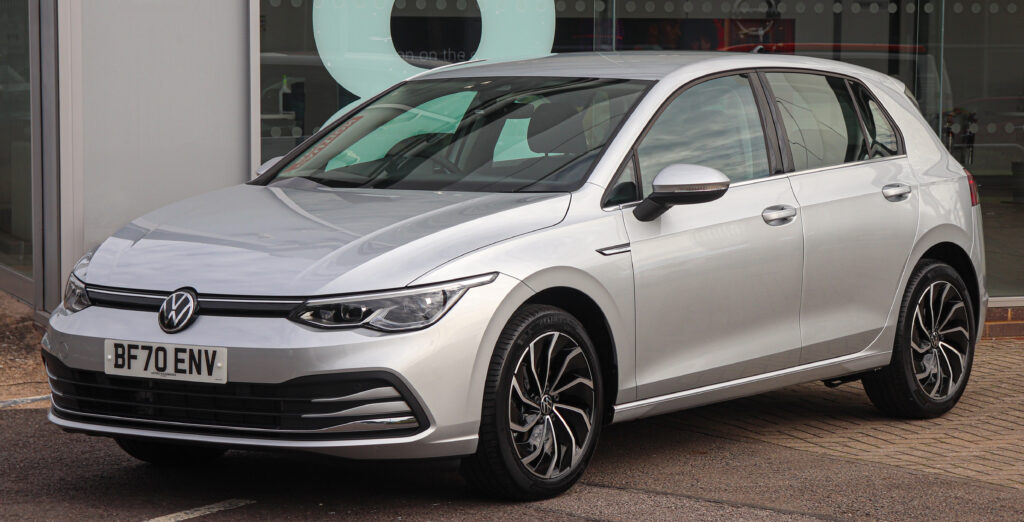
Volkswagen Golf Reliability: The Complete 2025 Buyer’s Guide

Few compact cars have built a legacy as enduring as the Volkswagen Golf. Known for its refined engineering, premium interior quality, and engaging drive, the Golf stands as one of the most trusted hatchbacks in automotive history. But when it comes to reliability, not every model year performs equally well. In this detailed guide, we examine the most reliable Volkswagen Golf years, common issues to watch for, maintenance insights, and how the Golf stacks up against its rivals.
- Overview: Is the Volkswagen Golf Reliable?
- Volkswagen Golf Reliability by Generation
- Most Reliable Volkswagen Golf Years
- Least Reliable Volkswagen Golf Years
- Common Volkswagen Golf Problems
- Maintenance Costs and Longevity
- Owner Satisfaction and Consumer Ratings
- How the Golf Compares to Rivals
- Tips to Extend the Life of Your Golf
- Final Verdict: Is the Golf Worth Buying in 2025?
Overview: Is the Volkswagen Golf Reliable?
The Volkswagen Golf has a long-standing reputation for solid build quality and European driving dynamics. However, its reliability has varied across generations and model years.
According to long-term owner data, recent Golfs (2018–2021) perform significantly better in reliability compared to older models from the early 2000s. While engine and transmission issues plagued some earlier versions, later models benefited from Volkswagen’s refined TSI engines and improved electronics.
You may be interested in reading Volkswagen Golf Towing Capacity (All Models & Years) | Complete Guide
Volkswagen Golf Towing Capacity (All Models & Years) | Complete GuideAverage Reliability Rating (2025 Data)
| Source | Reliability Score | Notes |
|---|---|---|
| J.D. Power | 77 / 100 | Above-average for compact cars |
| RepairPal | 4.0 / 5.0 | Lower-than-average annual repair cost |
| Consumer Reports | 4 / 5 | Solid performance and build quality |
| CarEdge | Excellent | Predictable depreciation and maintenance |
Volkswagen Golf Reliability by Generation
Each generation of the Golf introduced improvements but also brought its own set of challenges. Here’s a breakdown:
| Generation | Years | Highlights | Reliability Summary |
|---|---|---|---|
| Mk4 | 1997–2004 | First modern Golf with refined interiors | Mixed reliability due to electrical and window regulator issues |
| Mk5 | 2005–2009 | Introduction of FSI/TFSI engines | Engine oil and timing chain issues |
| Mk6 | 2010–2014 | Improved safety and quality | Reliable diesel and petrol options |
| Mk7 | 2015–2020 | MQB platform, advanced safety tech | Strong reliability, minor infotainment glitches |
| Mk8 | 2021–Present | Digital cockpit, hybrid variants | Excellent efficiency, early software issues resolved by 2023 |
Most Reliable Volkswagen Golf Years
1. 2021 Volkswagen Golf
- Why it stands out: The final year of the Mk7 lineup, offering peak refinement before the Mk8 redesign.
- Reliability rating: 4.3/5 (Edmunds), 5-star NHTSA safety score.
- Key features: 1.4L turbo engine, smooth 8-speed automatic, advanced driver aids.
- Common praise: Excellent balance between performance and comfort.
2. 2020 Volkswagen Golf
- Why it’s reliable: Shares proven powertrain and minimal reported faults.
- Real-world MPG: 35+ combined.
- Known for: Sturdy construction, reliable TSI engine, low maintenance costs.
3. 2018 Volkswagen Golf
- Highlights: Upgraded infotainment, improved materials, and solid safety ratings.
- Owner-reported issues: Very few mechanical failures; only minor infotainment bugs.
4. 2014 Volkswagen Golf
- Strengths: Excellent ride quality and cabin comfort.
- Reliability factor: Durable engines (especially the 2.5L inline-five).
5. 2006 Volkswagen Golf
- Legacy reliability: Simple mechanical design, minimal electronics, affordable upkeep.
- Common praise: Runs reliably with basic maintenance even past 200,000 miles.
Least Reliable Volkswagen Golf Years
1. 2015 Volkswagen Golf
- Main issues: Coolant leaks due to thermostat housing and water pump failures.
- Repair costs: Up to $1,800 per incident.
- Verdict: Avoid unless service history confirms replacements.
2. 2011 Volkswagen Golf
- Common faults: High-pressure fuel pump failures, electrical shorts, stalling.
- Symptoms: Check engine light, low fuel pressure, rough idle.
3. 2001 Volkswagen Golf
- Critical issues: Spontaneous airbag deployment, transmission failures.
- Safety concerns: Rated one of the least reliable Golfs ever made.
4. 2000 Volkswagen Golf
- Frequent complaints: Window regulator failures, electrical malfunctions, faulty dome wiring.
5. 2022 Volkswagen Golf (Early Mk8 models)
- Problems: Software glitches, loose coolant hoses, sensor malfunctions.
- Status: Fixed in later 2023+ updates, making newer Mk8 models safe bets again.
Common Volkswagen Golf Problems
Despite its strengths, some recurring issues have affected various generations:
- Coolant leaks – often due to plastic thermostat housings.
- Electrical malfunctions – window regulators, infotainment screens, and sensors.
- Fuel pump failures – mainly in 2011–2012 models.
- DSG transmission jerks – early dual-clutch models needed software updates.
- Sunroof leaks – reported on Mk6 and Mk7 variants.
- Timing chain tensioner issues – especially in pre-2013 turbo engines.
Maintenance Costs and Longevity
Owning a Golf doesn’t break the bank when properly maintained.
You may be interested in reading Volkswagen Golf Towing Capacity (All Models & Years) | Complete Guide
Volkswagen Golf Towing Capacity (All Models & Years) | Complete Guide Is the Volkswagen Golf a Good First Car? The Ultimate Buyer’s Guide for New Drivers
Is the Volkswagen Golf a Good First Car? The Ultimate Buyer’s Guide for New Drivers| Item | Average Service Interval | Estimated Cost (USD) |
|---|---|---|
| Oil Change | Every 10,000 miles | $120 – $150 |
| Brake Pads | Every 40,000 miles | $250 – $400 |
| Timing Belt / Chain | 80,000 – 100,000 miles | $900 – $1,200 |
| Transmission Service | Every 60,000 miles | $250 – $400 |
| Total Annual Maintenance | — | ~$640 / year |
Longevity
With regular care, the Golf can easily exceed 200,000 miles—especially diesel variants or the 1.4 TSI petrol engines known for endurance.
Owner Satisfaction and Consumer Ratings
| Model Year | Edmunds | Kelley Blue Book | JD Power |
|---|---|---|---|
| 2021 | 4.3 / 5 | 4.3 / 5 | 76 / 100 |
| 2020 | 4.4 / 5 | 4.3 / 5 | N/A |
| 2018 | 4.5 / 5 | 4.3 / 5 | 77 / 100 |
| 2014 | 4.7 / 5 | 4.8 / 5 | 77 / 100 |
| 2006 | 4.6 / 5 | 4.2 / 5 | — |
How the Golf Compares to Rivals
| Model | Reliability | Driving Dynamics | Cost to Maintain | Overall Rating |
|---|---|---|---|---|
| Volkswagen Golf | 4.0 / 5 | ★★★★★ | Moderate | 8.6 / 10 |
| Honda Civic | 4.5 / 5 | ★★★★☆ | Low | 8.7 / 10 |
| Mazda3 | 4.4 / 5 | ★★★★★ | Low | 8.6 / 10 |
| Toyota Corolla | 4.8 / 5 | ★★★☆☆ | Very Low | 8.5 / 10 |
While the Toyota Corolla wins in pure dependability, the Golf delivers a premium, European driving experience unmatched by its rivals.
Tips to Extend the Life of Your Golf
- Use VW-approved synthetic oil (VW 502/504 standard).
- Replace the timing chain tensioner before 100,000 miles.
- Perform DSG transmission service every 60,000 miles.
- Keep drainage channels clear to prevent sunroof leaks.
- Regularly update infotainment and ECU software.
Final Verdict: Is the Golf Worth Buying in 2025?
Yes — the Volkswagen Golf remains one of the most reliable compact cars in its class when you choose the right model year.
You may be interested in reading Volkswagen Golf Towing Capacity (All Models & Years) | Complete Guide
Volkswagen Golf Towing Capacity (All Models & Years) | Complete Guide Is the Volkswagen Golf a Good First Car? The Ultimate Buyer’s Guide for New Drivers
Is the Volkswagen Golf a Good First Car? The Ultimate Buyer’s Guide for New Drivers Volkswagen Golf vs Polo (2025): Which Hatchback Reigns Supreme?
Volkswagen Golf vs Polo (2025): Which Hatchback Reigns Supreme?The 2018–2021 Golfs represent the sweet spot: modern technology, strong reliability, and refined comfort. Early Mk8 models (2021–2022) are improving fast as Volkswagen refines their software and systems.
If you’re shopping in 2025, a 2020 or 2021 Golf offers excellent reliability, premium build quality, and engaging performance — the perfect blend for both city commutes and long-distance drives.
If you want to know other articles similar to Volkswagen Golf Reliability: The Complete 2025 Buyer’s Guide you can visit the category Blog.
Leave a Reply





More content of your interest